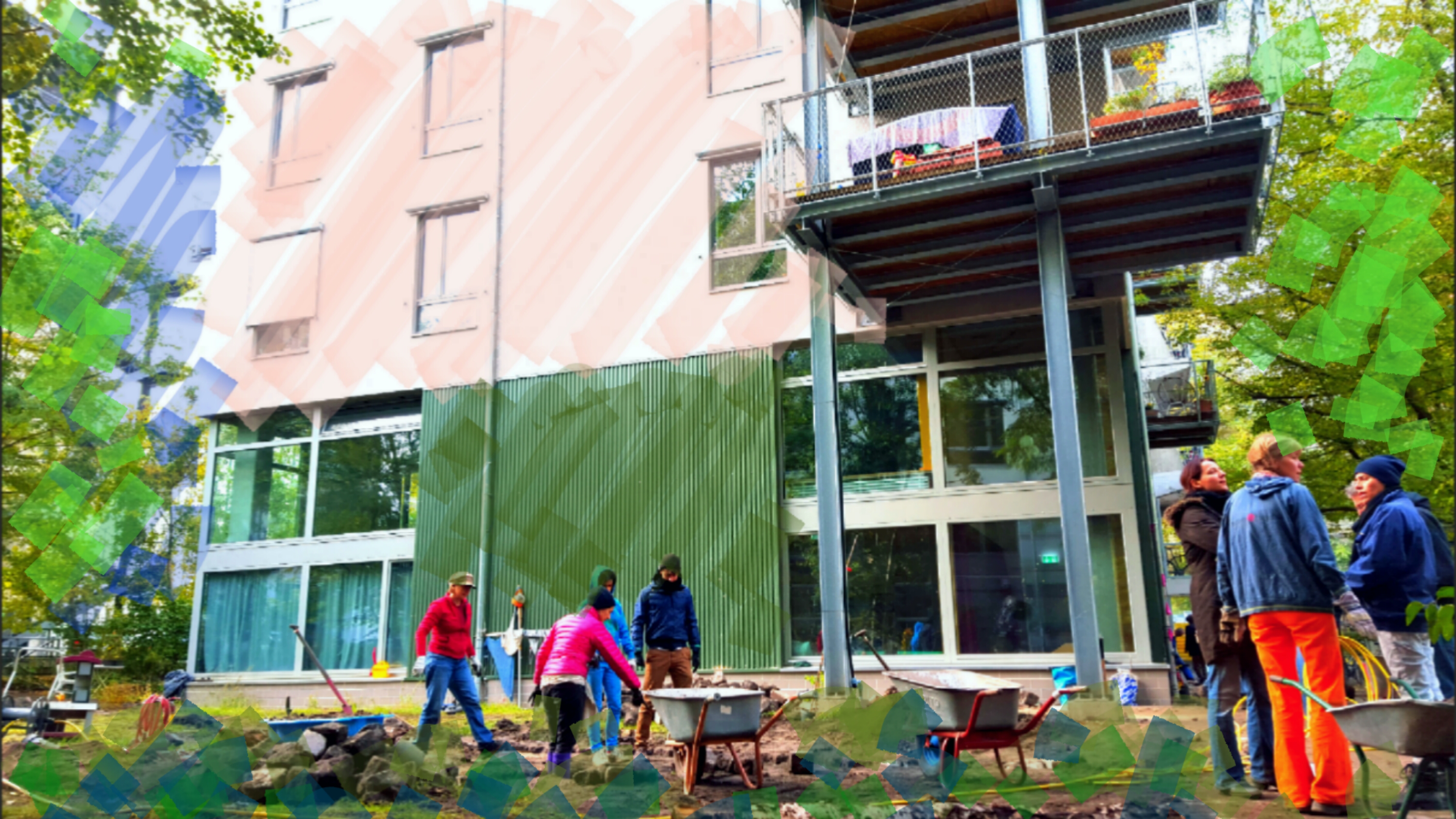A new European Network supporting Emerging Models of Collaborative Housing for Social Inclusion: Municipal Policy Mechanisms for Housing Commons_____ Europe for Citizens – Network of Towns – EU Project_____ Creating an EU-wide network of cities who are actively increasing their… more

Info
I am a multidisciplinary independent working at the intersections of common good and collective ownership in the urban lab known as Berlin.
My projects begin with the theory and practice of social ecology, emphasizing dialogue, self-organization and local urban initiatives.
Important to me are strategies of community development and conviviality.
I coordinate a range of educational services, networking events and publications exploring Cooperatives and CoHousing as well as related fields like Community Land Trusts and Community Gardening in the context of a post-growth, democratic urban development. Projects include the new interactive eBook SOCIAL-ECOLOGICAL COOPERATIVE HOUSING, CoHousing Cultures, EXPERIMENTDAYS, CoHousing-Berlin, CoHousing Inclusive, Creative Sustainability Tours, etc.
Personally active for decades with Community-Led Housing and for years with the Stadtbodenstiftung, Berlin's CLT - a nonprofit, urban land foundation. Since 2011 involved in the development of the Spreefeld Housing Cooperative as well as the Spreeacker initiative with its edible landscapes and food forests. Happily at home in the Spreefeld’s Spree WG 1 shared-living group.
Publications
Social-Ecological Cooperative Housing – eBook
Community-based, transformative building and living
From land speculation and exploding rents to climate change and social inequality, we find ourselves in an age of overlapping crises. As such, it is more important than ever that we rethink the ways we live and share, as well as our systems of land and property ownership.